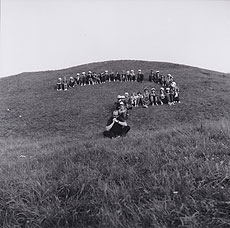
Managing a wine tasting room is a great job for a writer because, when it’s not too busy, you can become a kind of social scientist: observing people and trying to see why humans do what we do.
You can even allow your curiosity to navigate some of the deeper questions about the human experience.
One recent observation:
The “poison apple” of the smart phone has changed how we do things alone–eating, drinking, or traveling, in particular.
FACT: People rarely come to taste wine by themselves (at our place).
That may seem obvious. Wine tends to bring people together, right? Maybe I shouldn’t be so surprised that people only rarely come alone.
But it IS strange.
Think about it like this:
Shopping for food or clothes alone isn’t considered weird and people tasting wine are really just shopping for wine.
The only difference perhaps are presumptions, previous experiences, or maybe subterranean social exceptions.
• Feeling low…solo
When people visit the tasting room alone, I can usually sense their social discomfort. They might suddenly offer me a reason why they are alone this time or they might neurotically use their phone to look busy or connected.
The alternative, of course, would be to interact with and absorb the environment they are truly in or look for ways to subvert social fear through some modicum of meaningful interaction: friendliness, conversation, inquisitiveness, for starters. So terrifying is the prospect of looking lonely at a winery, that many solo customers barely experience it at all.
• Confronting fear
This observation got me to thinking of ways I try to numb or avoid these fears or points of discomfort in myself and in my life. What am I missing that I shouldn’t be. The default is to use technology to connect, but at what cost?
When I interviewed Rolf Potts, famed travel-writer and best-selling author, he talked about his own wrestling with the seduction of “not being where he was” by engaging with technology. One of the most memorable things he said was this:
“When you travel alone you are forced to confront your own loneliness and boredom, and interact with your surroundings in ways you can’t [when you’re] with a companion.”
We miss our chances for new experiences with the advent of constant so-called “connectedness”, don’t we?
The habit forms quickly. Only thoughtfulness will heal this malady.
(Here’s the video. He covers that bit around min 2:40.)
Do you question how you use technology and confront what it might be stealing from you?
Encountering our loneliness more deeply could create epiphanic moments of self-discovery and new insights into what we fear and what makes us each unique.
Maybe it’s time to do something alone to test your social fears, deepen your healthy sense of self, and develop a new sense of social, and even spiritual, courage and strength.
Maybe leave your phone is the car for the 30 min you shop, eat out, or exercise. Good things could happen.
If you like what you’ve read, consider getting my in-depth but consice weekly correspondence, starting soon.
Learn about it here.




